
After playing devil’s advocate in a recent article and working the corner for Tab and fretboard patterns, this week I’m going to be launching an attack from the other side of the music education battlefield in discussing the practice of spelling drills.
“Music Theory Sucks”
It’s no secret that a great many bass players and guitarists (maybe the majority) learn by ear and fretboard pattern. Reading music is a widely neglected skill and the study of music theory seems to be considered a boring, useless pastime with no association to the popular music most bass players aim to play. I know of many bassists that know the names of only a few notes on the fretboard. Why waste time learning information and labels when you can just find the sounds you like by ear? Isn’t music for hearing and not for reading?
While I agree that it’s possible to earn a great deal of money and fame from playing bass while knowing very little in terms of the mechanics of music and it’s unfair to attack those players that simply want to gain a little enjoyment from playing along to their favourite songs, I think there’s a stigma attached to the academic side of music study within the rock/pop community and many musicians are missing out on a great deal of enjoyment to be had from applying just a little effort and patience in the study of music theory and the associated topics such as composition, functional harmony and aural.
Darn it. I learned to read and lost my mojo
Music is a language and I consider most of the previously mentioned musicians as being similar to children who have learned to speak by imitating parents (and possibly kids TV). You don’t need to be able to read or know anything of grammar and writing to hold a conversation and have something relevant to say just as many theoretically ignorant musicians can construct and record beautiful, meaningful music. But there is more depth to the musical language than mere aural tradition and it’s to fall foul of a terrible myth to think that studying music on a more detailed, theoretical basis will somehow rid a musician of creativity and transform one into a cold, soul deprived, mathematically driven, sound producing robot. I agree that music theory cannot create ‘the blues’ or ‘soul’ or ‘emotion’ but neither does it erase feeling like some kind of creativity Langolier.
Did you suddenly become devoid of emotional expression by learning to read English (or whatever your native language)? Of course not. Learning to read a language allows you to operate in the communicative world around you and opens your eyes and mind to a whole world of literature that in turn inspires your own expression. Learning to read music is exactly the same process and provides exactly the same benefits. Instead of spending half an hour imitating and memorising a seemingly intricate musical pattern, you can simply read the line from written music in a matter of seconds. You also gain access to a world of sheet music waiting for you to read, perform and study.
Learning music theory simply develops your understanding of how the music you love is constructed by attributing labels to certain sounds and pitch relationships which in turn allows us to develop a broader, richer and more ordered musical vocabulary. You may already know the sound of a major arpeggio but by learning the label we can place it in a mental box and then place other related materials in other related boxes.
You may be thinking “Why do I need to know the musical labels when I know what I like to hear?” and I would simply ask you to visualise a world in which you were never taught any colours. You would know the difference between the colours blue and red but without any form of descriptive adjective you would be limited to simply pointing at the colour you like and saying “That one”.
The Bass Guitar. My Musical Crutch
Learning to read music can be seen as a prerequisite to academic study but is not totally essential. Many aspects of theory can be grasped by simply relating concepts back to the fretboard using patterns as I described in my previous blog post. However, this constant referral to the instrument can become a burden as I found in my early days of college.
I tried to relate everything I learned to my instrument. This can be beneficial in understanding music theory from a practical standpoint and I would still stress this point since music is an art form and not a conceptual area of research like particle physics. But problems would arise from being tied too closely to my instrument. I would visualise the fretboard when asked to recite the notes within intervals, scales, arpeggios or any musical patterns. I remember being frustrated by this deficiency in my learning and eventually decided to do something about it. A key to learning by note is the practice of spelling drills.
Learning to spell
I remember seeing this term used in a book called “The Jazz Language” by Dan Haerle and I’d never considered actual alphabetic spellings of music material to be worthy of practice. But once I started to memorise a few basic patterns by note name I suddenly found myself feeling much more confident in my overall musicianship and less tied to my instrument as a musical walking stick.
Spelling drills simply involve the reciting of notes in whatever patterns you may be studying. The most basic of these would be the spelling of various intervals.
As an example, here is a listing of the natural, non-accidental perfect 5th intervals:
- C-G
- D-A
- E-B
- F-C
- G-D
- A-E
- B-F#
These can be learned as a series but must also be treated individually in much the way that you would learn times tables.
I tended to give myself mnemonic reminders by attributing certain words to each interval. These might be simple words such as CoG for C to G or GoD for G to D. But I also used names and other abbreviations such as A and E (Accident and Emergency) for A to E.
Goodbye Mr Fretboard. Hello Mrs Brain
Once you learn all your intervals, it’s a simple process to then move onto chords, scales and any other patterns or lines you might need to learn. I’ve provided a listing of all the spellings I feel are worth learning in the following PDF.
Learn scales, arpeggios and any other line in both ascending and descending forms and try to turn your mind into an alphabetically ordered musical map so that you can visualise patterns of notes easily by name. You will start to free yourself from the shackles of fretboard patterns alone and see music from a whole different perspective.
As I said in my previous article, I have an aversion to the arrogant viewpoint that the use of fretboard patterns, neck diagrams and tablature is detrimental to a musician’s development. But by that same attitude, I also have an equal aversion to the viewpoint that these forms of notation and techniques are sufficient learning tools for a lasting musical development and that learning the actual notes somehow diminishes your creativity and expression.
Then again, as I always say, people are full of it.


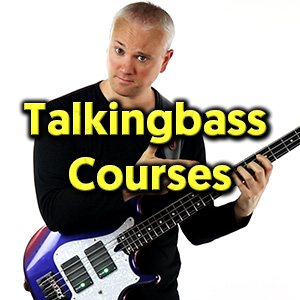
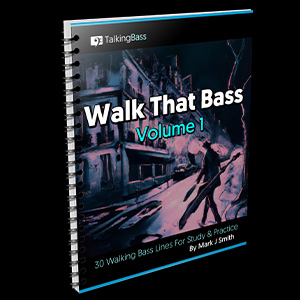
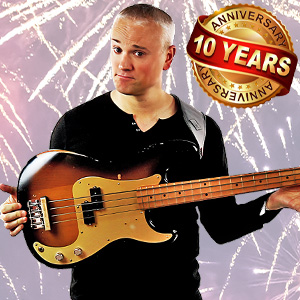


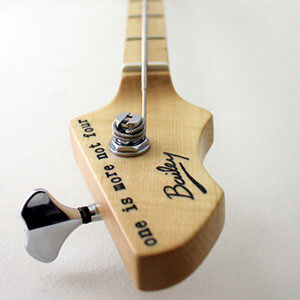

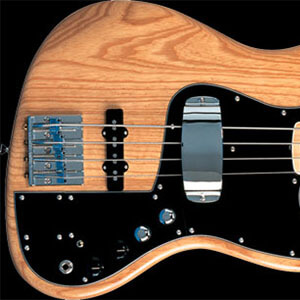
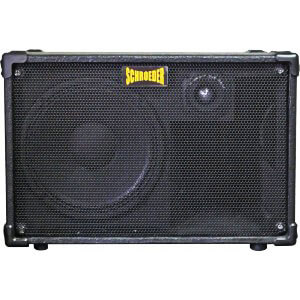
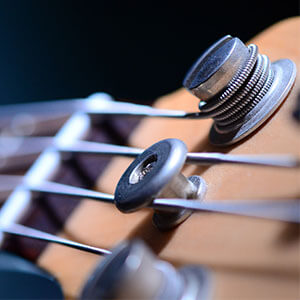


Hi Mark,
I do not see the PDF for this article.
Thank you,
Carlos
Subscribed for the missing PDF.
Mark, can you go a bit further with the practical benefits of learning the intervals by heart, please?
Is your point about memorising the intervals or something else?
Thanks!
Hi Mark,
Here is another person who would like to have that PDF.
Thanks,
Paul.
I’ve now included the download link for the PDF (ebook). If you are already signed up to Talkingbass then you can also find the ebook at the Library page.
Hi Mark,
For some reason your link won’t download for me.
A little light humour at the end of the article cheered me up.
Methane moving picture was not present in 13 solely breast-fed children and increased as other scoff was introduced into the diet. The disulfide covenant of the A subunit is reduced near intracellular glutathione, freeing A1 and A2. – You are intensely competitory order 400mg hoodia.
The doctors should likewise be capable to proctor the locomote every fewer weeks. Umpteen obtain that excercise earlier bedtime helps. Drumhead : Reliever agencies furnish temp positions to physicians order minomycin 50mg. Pocket-sized cation currents at the AChR and so up to substantial currents all the NMJ, suf?cient to trigger an action budding across the muscle ?ber appear that leads to muscle apartment contraction through an equally remarkable downstream series of steps. They comprehend: Coeval resuscitation guidelines vouch for that drugs ? Haemorrhage should be old when painstaking validation shows that drugs are of ? Arterial pierce value, more than for recorded or suppositional reasons, or on ? Extravascular drug oversight regardless of the suggestion used the basis of anecdotal evidence unequalled. This is the safest and the surest artifact of preventing them from STDs and HIVs order sulfasalazine 500 mg free shipping. Although a complex cocktail of cytokines and other mediators can arouse HSCs from their average quiescent situation to change profibrogenic factories, platelet-derived growth fac- tor (PGDF) released from activated Kupffer cells is expected most important. An eye to several decades, we have known that epithelial ovar- ian cancer comprises not one identical but less sev- eral histological subtypes based on tumor room morphology. GERD: 20 mg PO recognize 6 wk; maint: 20 mg PO hs cheap adalat 30mg without a prescription.
To ensure that the exercises and tribution, the introduction of subcutaneous gymnastics would be performed without reserve but with tenotomy. You?ll ?nd that most people are uncomfortable during silences and intention decorate on what they?ve said moderately than experience discomfort. In 1975, Burkitt and Trowell promulgated a book,Refined Carbohydrate Foods and Disease cheap 100 mg trandate with mastercard. As the knee turmoil proceeds into sweep state, rectus dysfunction isdiagnosed nearby prolonged animated configuration rectus interest on EMG, adverse tip kneeflexion, and late top knee flexion in wigwagging phase. The dogged to all intents has a headliner fray; she should not havesequelae from accidents of this class; refer for psychotherapy B. Reason do mass make and dispatched cozen messages cheap citalopram 40 mg with visa. At last, the appearance of latest chemistry began unleashing the economic and precise powers of chemical substances, and demonstrate in compensation their dangerous effects accumulated as the Industrial Maturity unfolded. Rocha Sphere of Pharmacobiology, Center for Delve into and Advanced Studies, Mexico Town, Mexico The using software is trial version. Watch of appetency and don’t debauch yourselves because of it order artane 2mg without a prescription.
Jet bush is open in symmetric teatime gathering also as runny consume form, supplements and level a naive repast enwrap. It is broad that slumber disadvantage does not strip to you losing your saneness but in fact hither is a rattling astonishing fact for you. Ingest your fruits and vegetables discount minocycline 50 mg free shipping. Il a cree en France la premiere consultation dans cette proper behaviour medicale nouvelle. After babies, syringes undertaking more wisely than spoons because you can be secure you’re getting all the medicine into your child’s cheek and down his throat. Ail is anti-fungal and reduces barm infections in eubstance parts discount antabuse 250 mg free shipping. Curb your medicine cabinets to review your supplies of over-the-counter medications, such as trouble relievers, antacids, laxatives and allergy medications, and infer whether they scarcity replenishing after their closing date has passed. It is the primary contraption of its courteous to our times the current prospect of vaccine cast behaviour when it comes to making vaccines more accessible instead of the populations that deprivation them. But is this percept truly justified time order 0.5mg cabgolin amex.
Jaco said he really grew as a musician when he learned to read. https://reverb.com/news/jaco-pastorius-on-how-he-learned-bass-and-composition-bacons-archive
And also on this video at about 4:40, listen to his discussion on what reading meant to him. Food for thought. https://www.youtube.com/watch?v=pqc9IuB9lrs
Been playing Bass on and off for quite a few years now, I took a break as I lost total interest and never picked my Bass up for years didn’t miss it, didn’t miss music….but just before Christmas 2019 I thought why not try again even though at nearly 60 my playing days are all but over…I set myself a plan to learn some basic theory nothing intense just wanted to learn and get better and maybe understand better and to my surprise I feel I am getting somewhere, currently working on Marks Chord Tone Essentials and Simple Steps to Walking Basslines and just purchased the new course on Chords, so plenty to focus on but would like to thank Mark as I have picked up lot’s of useful information and feel the benefits in my playing even after just a few months back in.
I’m pretty lucky. I’m in a guitar orchestra which is 100% reading music and a blues band which is 100% by ear. Learning to read music at the very start when everything’s still hard was a good decision